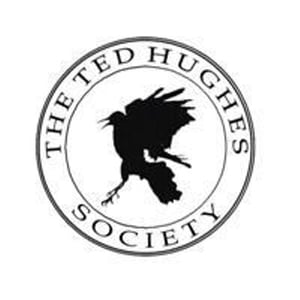Dramatic works by Ted Hughes
Alcestis (London: Faber and Faber, 1999)
Marija Bergam (University of Bari) considers Hughes's translation of Euripides's play.
Alcestis (1999, started in 1993) has at its centre a marriage put to the most extreme test – the wife’s sacrifice in lieu of her husband – which both precipitates its crisis and finally proves its worth. This play is connected to Phèdre by the figure of Apollo’s son Aesculapius, who never appears in either, yet binds them together on the plane of the larger mythical narrative. It is Aesculapius who is said to have resuscitated Hippolytus, the persecuted virginal prince unjustly slain in the last act of Phèdre, and this deed earns him the punishment by Zeus’s thunderbolt, ‘a dim, forgettable cause/Of what is happening … to the dying [Alcestis]’[1]. Moreover, Alcestis derives directly from Euripides’s text (438 BC), or rather, from its English translations.
If in Phèdre Hughes recognised a version of the destructive aspect of the Goddess, then Alcestis cannot fail to remind one of certain Shakespearean heroines from the late romances, whose selfless sacrifice brings a deeper understanding of life and of self to the immature hero. It is hard to summarise the importance this play might have had for Hughes the man and for Hughes the poet. It is first of all a painful confrontation with death, a good part of which is a prolonged and indulgent lament of the widowed King Admetos, interrupted by the (unheeded) instructions of the Chorus on how to confront the loss of the beloved wife. If it is not strictly classifiable as tragedy, it is not only because it ends on a joyful note after Admetos’s friend Hercules grapples with Death and brings Alcestis back to life. There is also the question of it deriving originally from a satyr play by Phrynicus, also called Alcestis, and taking the place of the satyr play as the last in the series of four plays performed during a festival [2]. It is precisely this fact that Hughes uses for his purposes in expanding the famous scene of Hercales’s revelry, only alluded to indirectly in Euripides. Hughes introduces the explicit reference to the Satyrs by having the Servant call Heracles ‘A wild man of the woods’ [3] and then interpolates a comic (in the original sense of the word) staging of his past labours and those that are yet to come. By doing so Hughes opens up the play to other legends gravitating around the figure of Heracles, leading the reader to consider the semi-god’s own mortality. He also gives weight to the satyric rituals which are always related to the idea of resuscitation, so crucial in this play. This episode is only one of the many additions Hughes contributes to Alcestis.
Another remarkable intervention is the dialogue between Apollo and Death (Thanatos), which contains one of Hughes's most assertive statements on the absoluteness of Death, who casts Apollo in the role of simple anaesthetist, as opposed to a healer. Significant translation shifts on the level of content are visible everywhere in this play, in Alcestis and Admetos’s speeches (some are among Hughes’s most memorable and touching lines) and particularly in the lines ascribed to the Choruses. Reading these passages one cannot help but notice how they fuse the notion of Necessity (or Destiny) and the mythical dimension with raw personal emotions of a kind Hughes must have dealt with after Plath’s suicide. The same structure underlies the poems from Birthday Letters (1998), which share a similar tone and at times an uncannily similar theme. In fact, in a draft of a letter sent to Seamus Henaey, Hughes explicitly refers to Alcestis as 'a theme that might get hold of something of all that on a different level' [4]. The fact that this play was not commissioned by a theatrical company but is better seen as an expression of the author’s own artistic needs may explain the greater freedom he took with the Greek original – including the colloquial and anachronistic language – and the intriguing level of intertextuality, connecting it not only to ancient myths but above all to Hughes’s own poetry.
Marija Bergam is a junior research fellow at the Faculty of Foreign Languages and Literatures, University of Bari. In 2009 she completed a doctorate in Translation Theory and Practice, during which time she researched the potential of the instruments provided by Translation Studies in the analysis of literary works. Her research interests include the representation of the natural environment in Derek Walcott’s verse and Lorna Goodison. In addition, she has been working on the poetics of landscape in Ted Hughes's poetry, while maintaining an interest in Translation Studies by investigating Hughes's roles as both as a translator of drama and as an active advocate of poetry translation in England.
Notes
[1] Ted Hughes. Alcestis. London: Faber and Faber, 2000. p. 2.
[2] Gilbert Murray. The Alcestis of Euripides. London: George Allen & Unwin, 1915. Project Gutenberg. Web. 23 December 2003.
[3] Ted Hughes. Alcestis. London: Faber and Faber, 2000. p. 39.
[4] Personal and writers' correspondence, Heaney. Bitish Library Archives and Manuscripts. Add MS 88918/35/12 : 28 Nov 1991-19 Sep 1998.
